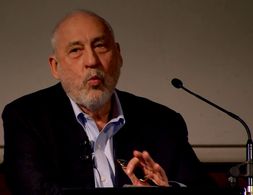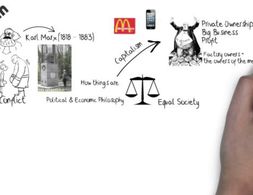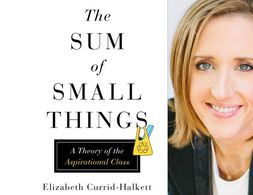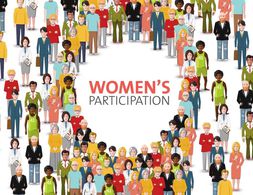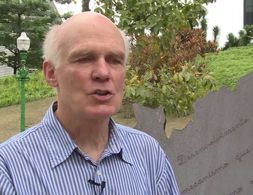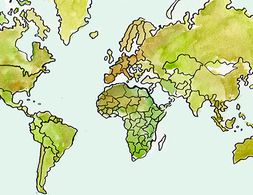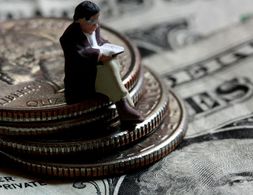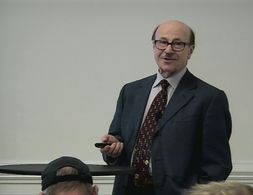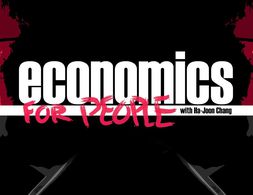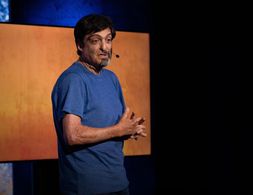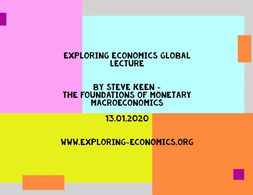✕
1098 results
Trickle Down Economics - an old topic, but still present in our lives. The idea consists of deregulation of the economy and of lower tax for the top in order to increase the "size of the pie" so everybody would have a bigger piece, even with a smaller share.
This presentation looks at the basic idea of Marxism, specifically the conflict between the different classes in society.
Anwar Shaikh explores alternative economic explanations, emphasizing 'real competition' theory and the role of imperfections in economic patterns.
In this interview, Elizabeth Currid-Halkett presents her view on how "the leisure class has been replaced by a new elite, and how their consumer habits affect us all".
This animated video explains gender responsive budgeting and how it is used to mainstream gender in governance planning and budgeting. The video has been pro...
Prof. Robert Wade (London School of Economics, UK) discusses industrial policy, the challenges of economic development for emerging countries like Brazil and...
Although sometimes used as synonyms, economic growth and economic development refer to different processes. While economic growth refers to an increase in real national income and output (i.e., GDP growth rate), economic development refers to an improvement in the quality of life and living standards (i.e., life expectancy).
What is game theory? Game theory is a way of thinking about strategic interactions between people, which makes it a crucial component of economics, political science, international relations, psychology and a variety of other disciplines that deal with the complexities of human interaction in decision making.
This article investigates the set up of the CFA franc zones, its ties to French neocolonialism and its ability to further breed dependency in the former colonies.
The article is a formal response to the debate between the economists Diane Coyle and Howard Reed, whose articles were published online by Prospect magazine in 2018. Then, it was taken by Rethinking Economics as representative for the vision of the global network which advocates for changing economics curricula. In fact, it clearly solves some issues within the debate around pluralism by explaining its common misunderstandings among academics and its true - often mislead - meaning.
Since Daniel Kahneman won the Nobel Memorial Price in Economic Sciences in 2002, a new branch of economics gained academic and popular interest. That is, the so-called area of behavioural economics. However, some scholars claim that this new area of economics is not changing much of the mainstream paradigm. Why?
In this article, Perry Mehrling, a professor of economics at Barnard College, presents and discusses three theories of banking which are guiding bank regulation. These are credit creation theory, fractional reserve theory and debt intermediation theory.
Ernest Mandel, a heterodox Marxist economist, shows here how a political economist can analyse systems such as the Soviet Union.
The main goal of this website is to make Economics less confusing. You can explore what the discipline of Economics is and could be. Learn about basic Economic terms and jargon.
In this talk, Eric Beinhocker outlines his ideas of how to ensure a just and sustainable future for Humanity: This includes his interesting Russian Doll approach to unpacking 20th-century economics and proposals of new theories to underpin a new economic system.
Donald Trump won in 2016 largely because enough voters in three states, all in the Rustbelt, which had voted for Barack Obama in both 2008 and 2012, switched their electoral votes from Democratic to Republican.
What data is used in the economic models of the IPCC? How problematic is it, that tipping points are often ignored? A very interesting presentation by Steve Keen during the OECD Conference "Averting Systemic Collapse".
A rethinking of the way to fight global poverty and winners of the Swedish Bank Prize for Economics.
Professor Jennifer Clapp explains the dynamics of financialization of land and agricultural commodities in Subsaharan Africa. She points to the historical roots of accelerated land speculation and their connection to financial institutions, both generating and reinforcing the process of financialization of African land. Besides talking about roots and dynamics of speculation with land on financial markets, she puts the perspective of scholarly investigation onto the investor's side in discussing guidelines of responsible investment and regulation in the front instead of focussing on the receiving countries.
In this short video Peter Reich illustrates seven aspects of the state of the US economy. He provides suggestions on how to to get started to move towards a more fair distribution of wealth.
Prof. Robert Guttmann looks at the current transformation of the international world order through the lenses of global money and finance.
This content submission has two parts: (1) a link to the post by Wolf Richter on deterioration of US subprime credit card debt and loans, driven in part by the overuse of hedonic quality adjustments in the Consumer Price Index (CPI) used by the US Bureau of Labor Statistics, and (2) to introduce Exploring Economics to the website Naked Capitalism, which is an effort to promote critical thinking through the medium of a finance and economics blog and fearless commentary.
The authors discuss how identity affects economic outcomes by bringing together psychological and sociological perspectives and economics. For economic outcomes of a single individual, it might be interesting which kind of social groups this individual belongs to. This may influence individual daily decisions and hence economic outcomes. It can, however, not only affect individual economic outcomes but also economic outcomes of organizations, institutions and other groups. This paper describes these influences with respect to gender in the workplace, to the economics of poverty and social exclusion, and to the household division of labour.
Quinn Slobodian a historian of modern Germany and international history analysis of current development in the Mont Pèlerin Society and therefore neo-liberalism. He sees neo-liberalist thinkers less as believers in the self-healing power of markets, but more as ordo-liberal Globalists who wanted to protect the markets from post-war politics and especially mass democracy. Their goal of global capitalism is still strong, however sceptics in the Mont Pèlerin Society are rising, which see international migration as a threat to Globalisation. Therefore, turning neo-liberal policies away from international institutions like the EU back towards the national states as new defenders of the markets as well as international trade and investments.
(A development which can be seen in the Friedrich A. von Hayek-Gesellschaft and especially in the "liberal" wing of the German rightwing populist party AfD)
How does fiscal policy work and which dimensions have to be considered? In this short text, you can learn about the difficulty of juggling different dimensions and which optimal rules exist at the micro and macro level.
Mariana Mazzucato explains how we lost sight of what value means and why we need to rethink our current financial systems so capitalism can be steered toward a bold, innovative and sustainable future that works for all of us.
Economics has long been the domain of the ivory tower, where specialized language and opaque theorems make it inaccessible to most people. That’s a problem.
In this TED Talk, the behavioral economist Dan Ariely explain how changing our environment could change our behavior and how this connects with how we think about economics, through simple but powerful examples.
Planet Money and The Indicator aim to explain current economic events in an easy, fun and accessible manner.
As part of the 2019/2020 Exploring Economics Experience, one of our supporters Prof. Steve Keen gave a presentation to our editorial team. Read more
In her short contribution, the author questions how the value of goods and services is shaped in current neoclassical teaching. She criticizes the principle of pricing based on marginal income. She discusses what can be called wealth generating, what kind of wealth we need and points out a lack of a value theory.
Prof. Yanis Varoufakis talks in this introductory lecture about the future of our economy and the current state of economics with special regard to pluralism in economics.
We use cookies on our website. Click on Accept to help us to make Exploring Economics constantly better!

